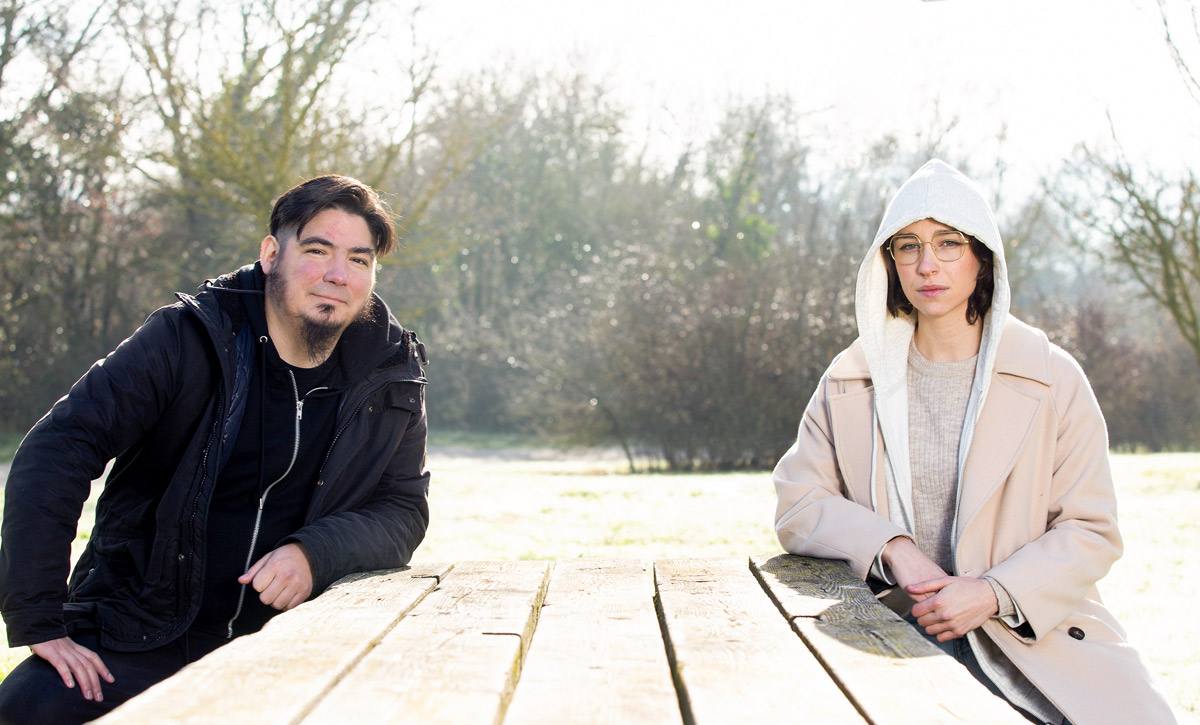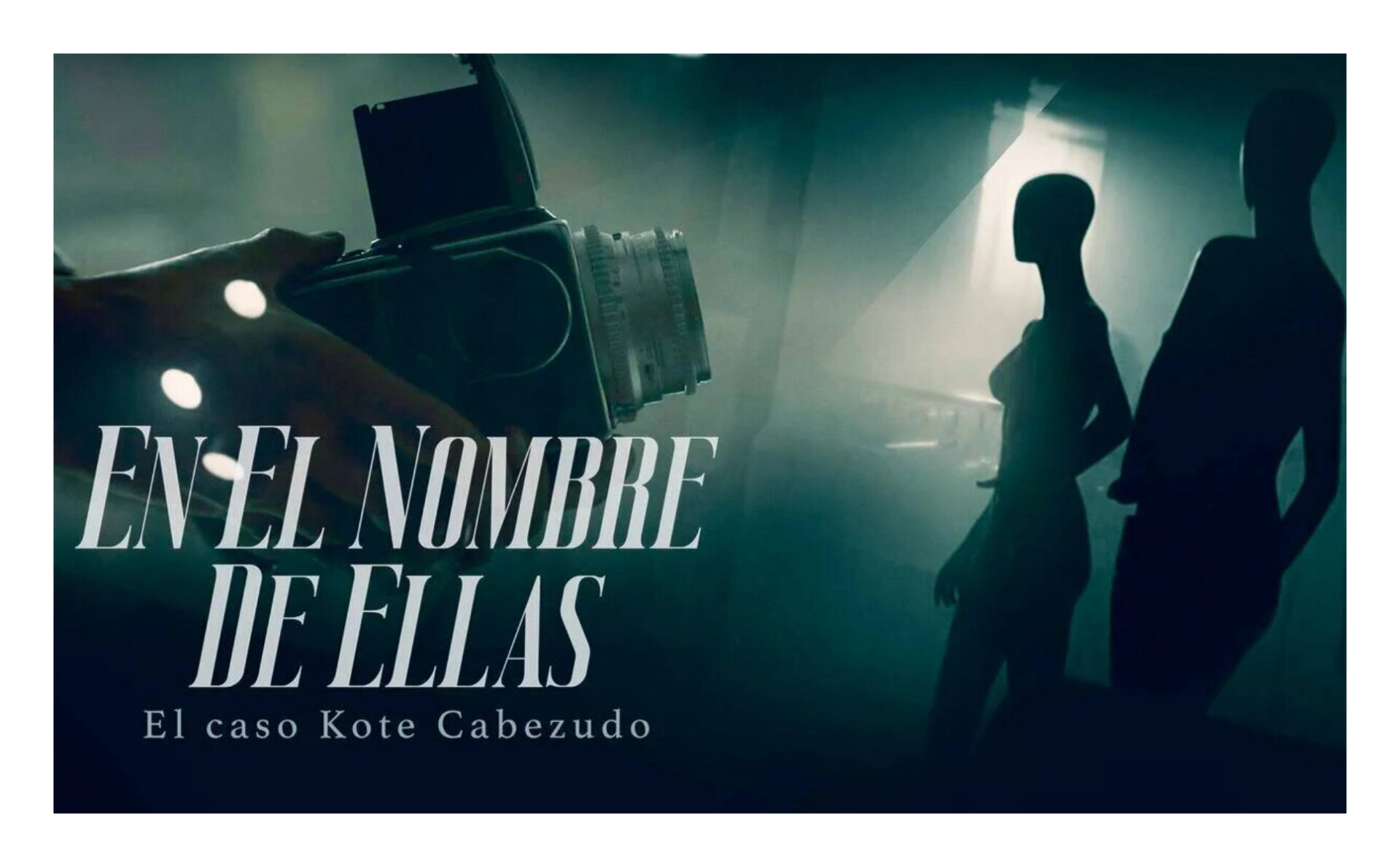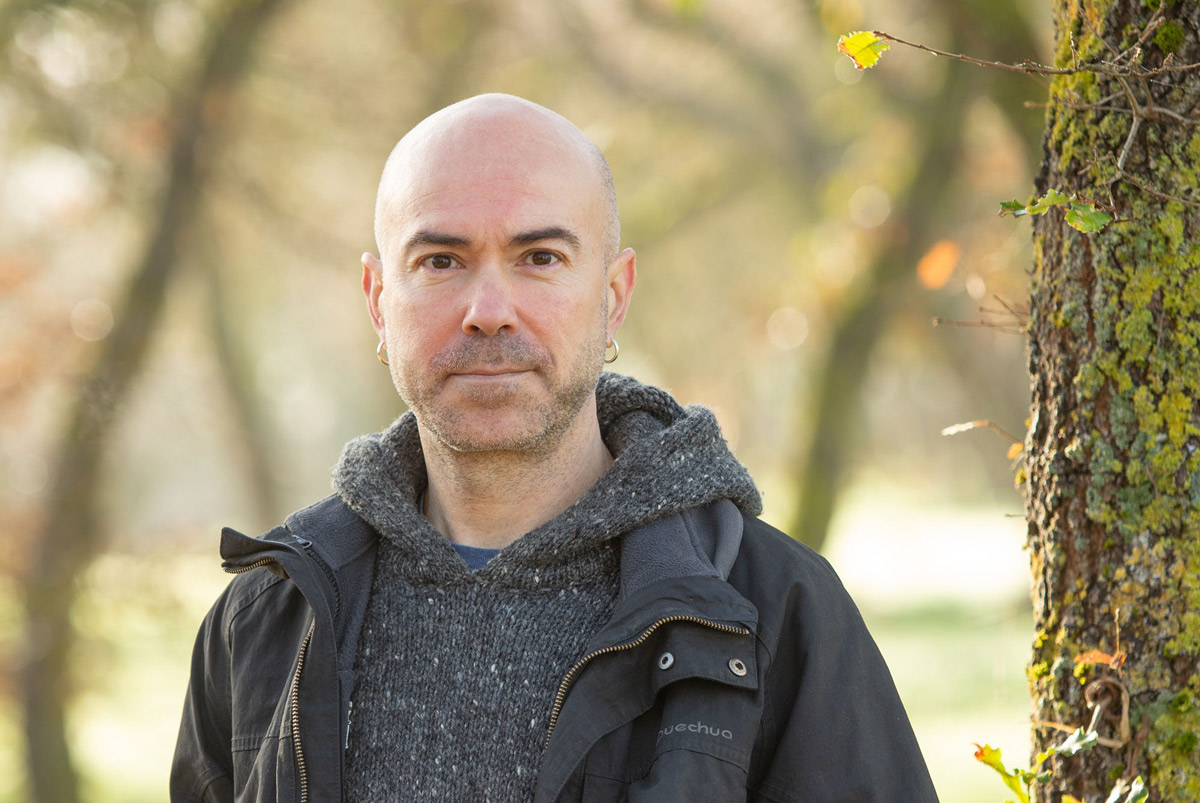"We also need big, epic, sublime films."
- Pagans live hidden in the forest of Irati fleeing from Christians. But the latter will need the help of others. A blood pact will unite the two peoples and then the mystery of all warmongers, beliefs and legends will prevail. On February 24, the film Irati comes to the movies. Irati is directed by Paul Urkijo and performed by Edurne Azkarate.

The premiere comes. Nervous? Paul Urkijo: Yeah, a little bit. Stressed too, with a lot of work in recent days. But wanting, above all.
Edurne Azkarate: It's long, to say it all. But we're entertained, yes. U.P.
: We premiered later than we wanted by the producer's order, so that the biggest films have not made us much shadow. There have been other festivals, and so far we can say it's gone well, because people like it.
At least it's beautiful to see. Landscapes are global. U.P. : Film shot across the Basque Country. In the caves of Karrantza
and Elciego, in the jungle of Irati, of course, we have also gone to Huesca to lands of the former Kingdom of Navarra, and we have also been to Peñas de Oñati, among other places. Filming is complicated in these areas, as in the caves.
Films in the Middle Ages are not the most common. How does it stand in such a distant past? A.R. : The adaptation of the Basque country is what has attracted me
most and immersed me. Gorka Lazkano has done a great job in the field of language, that was my point of maturity and imagination.
Paul Urkijo: "This film is an attempt to honor the history of Basque mythology."
They would also have to collect information to locate it in due course. A.R.
: Yes, in my case, in addition to the script, I have used other resources, such as books... U.P. : We have been informed, we talked to Aranzadi and we have tried to incorporate enough information to gain the credibility
of a fantasy film.
Of course, we've taken a lot of licenses. We had to take them. Since there are mythological beings, where is the reality? We have tried, yes, to care with all respect and affection for what was already included in the books.
.jpg)
You have departed from the comic book Irati of Joxean Muñoz and Juan Luis Landa. U.P. : It's been a reference and a base, but the comic itself has another tone. It's an adventure comic and teenage fantasy. So we've had to bring those
elements into our movie.
How? U.P. : We want this
film to be a tribute to the history of Basque mythology. What interests me most, from Basque mythology, is the character Mari. It is the highest personification of Amalur and, anthropologically, the imprint of a matriarchal religion before the Indo-European era. He's a very powerful character, and I think in comics, for example, he had no superiority. I did want to give him more, and that's why it's central. We immersed ourselves in Amalur through Irati.
Edurne, despite having a script, you should build the character. We are talking about mythology. To what extent have you felt free? A.R. : I had everything done and felt free at the same time. To the information I had before, each
section of the film added its own, and after all each one represents yours and I feed myself from all that. My job was to bring the character to the ground. From all that was read and collected, I nailed to the ground. The most terrestrial grips are acquired upon reaching the shoot, especially from the information provided by the text, clothing or scene in general. The clothing says a lot when it comes to building personality.
Edurne Azkarate: "We all had the feeling that we were doing something special, and that's spreading a lot. When everybody comes out, nice things come out."
Through Irati we will get to know Mari. There's a lot of curiosity to meet her. Somehow it's a benchmark, right? P.U:
Amalurra has it: she is
a mother and cares for us, but then sometimes it can be terrible and suddenly destroy everything. Irati wants to know this emotion. A.R. It was very nice. I worked for a short time with
Itziar Ituño, which is what Mari does. It was a challenge on a personal level and also for the character. In the sense of destination it was important for Irati. To be surprised face-to-face with Mari is for her a sort of ending, a moment that overcomes everything. A cave that can give access to greater understanding, a goal. You will see that it has something to do with everything that has happened to you. U.P. : A final turning point. A.R. : Yes, where this point meets both the beginning and the end. Black hole where everything is. And then, what's there? Well, I don't know. It's the highest destination of the character.
Amalgerian is in danger in the
film and is the eighth century. It is a current problem. U.P. : The film depicts a continuous dualism: Christianity and paganism; man and nature; Eneko and Irati... and how one has come to eat the other. Big religions, in the end, devour all small, special, colorful or dazzled beliefs in their eyes. It can therefore be reflected in current globalisation and ecology. Like big companies swallow small ones. We also see it in the field of creation: the big ones eat or deform the small ones. The example is Star Wars, he's eaten everything. Put everything in your field. And the same is true of ecology, how with money we spoil everything. The film also talks about perseverance. In Basque mythology there is a phrase: “If it is all that has a name”. If we keep saying the names of all these beings, if we keep telling stories, they will still exist.
.jpg)
There has been perseverance in Basque mythology, but to what extent? U.P. : I always say that I am one more part of a very long chain. Growing up, I read many books
about mythology. In short, these are ancestral beliefs that have remained despite the arrival of large elephants. The Basque country has collected all of them. The writings Barandiaran received, many publishers have worked hard to turn them into stories, and the song
Mari of Su Ta Gar is also an example. I have received it and given it another natural form, as it has come out to me. A.R. : Mythological characters have typically been used to perpetuate a knowledge and extend lessons to extend an explanation to the world. Irati's character may not be from classical mythology, but he does participate in the narrative of that knowledge and that teaching. As Paul says, I think with this film we can give a new image to the broad figure.
He mentioned the adaptation of Euskera, Edurne. It's moved you. A.R. Yes, absolutely. What has moved
me the most is to see all the actors involved. I believe that all the Basques have within our little philologist, who is aware of these issues. I have enjoyed it a lot and I think we have achieved convergence, it is important to make a credible film. U.P. : There is also dualism mentioned above. In the use of language, two worlds are distinguished, two forms. Pagans talk a lot about rimas, and others introduce
Latin words. It's also a tool for character building. A.R. I don't know if
you told me, Paul. He was unconscious: the clergy sing in Basque at first and as history progresses, more and more in Latin. It's global. Here we have immersed all the apartments and we have become very geek. Anyone who wants to find out a bit about this will find out what to study.
Euskera has been a bet. U.P. : It has happened to me in both Errementari
and Irati to listen to the producers why we do not make the film in Spanish or in English. It would be more profitable, we would travel more and we would get more prestigious actors: perhaps to make Patxi blacksmith we would have Javier Bardem and I do not know what else. But it makes no sense for this work to be carried out in a language other than the Basque language. These legends are deeply rooted in Euskera, not only in names and expressions, but also in the understanding of mythological creatures. These legends have persevered in Basque.
It has to be in Basque. U.P.
: On the one hand, and on the other, I wanted to give the Basque this ancient or ancient air, as a narrative tool to immerse the public more. For the Basques, of course, it had to be exotic.
Paul Urkijo: "It makes no sense for this work to be done in a language other than the Basque language. These legends are deeply rooted in our language."
The film is very homemade, it gives that feeling when you see the actors. U.P. : It is characteristic of the situation in Basque Country. We have a very good, very working and very good industry at work. It has been a pleasure to work with these people. A.R. There's been a lot of excitement. We all had the feeling that we were doing something special, and that was spreading
a
lot. When everyone comes out, nice things are done. The result is noticeable when you work with people who want to give this film and this idea the place it deserves.
You stood out in the festivals and if there is expectation. A lot of projection is expected, right? U.P.
: It's
a movie designed for the big screen. My intention has always been to be as epic as possible. A.R. : Maybe this country also needs these kinds of films. It has to cultivate the right to do great, epic and sublime things, but often that fact of great things in Basque has been confused and sanctioned with exaggeration. I think it is very important for the Basques to produce such productions. By the way, a recognition: we have people as crazy as Paul who get into these kinds of projects. We lack great references, excuses to dream away and great. U.P. : I said in a presentation and I always say that we are a "small town." Asisko Urmeneta rebuked that we are not a small people and we have to
be proud because our ancestors have maintained this culture and this language. That is why he said that we are a "great people of great value."
Let us talk about the Basque film industry. Movies usually show up as a drip, you say. What do they say? A.R. : Projects
are presented but are very limited in their implementation. I believe we must feed even more Basque cinema. U.P. : It is true that somehow it is protected from the Basque Government, something is guaranteed, but it is always little. I believe that the Basque film industry is getting healthier, and we
are moving forward, but slowly. The fact is that in the Spanish State there are also problems to access the halls, as the proceedings are carried out by foreigners. The biggest problem we have is that in our rooms there are always movies that are not ours. We ran out of a lot of solution. A.R. : The big one also eats small. U.P. Yes, but we will keep fighting. We hope that the
film
Irati will encourage more people to make films in Basque and that there will be more and more.
Do you have projects in your
hands, Paul? U.P. Yeah, always. But yes, I can say yes, I have something officially in my hands.
Something in the same
line? U.P. : Basque mythology, of course. What I love most is that.
[Here are some Irati frames:]

.jpg)


Martxotik Frantziako Netflix plataforman euskarazko audio eta azpitituluetako filmak ikusgai dira.
Hizkuntza gutxituak eta eta Frantziako zine-sistema hartu ditu ikergai Graxi Irigarai baigorriarrak bere tesian. Abenduan aurkeztu zuen bere ikerketa, eta ordutik hamaika mintzaldi eskaini ditu. Oro har, Euskal Zinemak Ipar Euskal Herrian dituen zailtasun eta oztopoak eman ditu... [+]
Euskaraz azpititulatutako edo bikoiztutako 70 ikusentzunezko eskainiko ditu 2022 urte bukaerarako plataforma estatubatuarrak. Eusko Jaurlaritzako Kultura eta Hizkuntz Politika sailak hainbat bilera egin ditu Netflixekin, baina plataformaren hitzetan, berak finantzatuko du ekimen... [+]
Gertatuko zitzaizuen: leku guztietan sekulakoa balitz bezala iragarri duten pelikula edo telesaila ikusi ondoren, frustrazio pixka batekin, “ez zen hainbesterako” esaten bukatu duzue. Eta azkenaldian inoiz baino gehiagotan gertatzen zaizue. Lasai, ez zaudete seko... [+]
Netflix, Amazon, Disney Plus eta Apple TV Plusek akordio luze bat sinatu zuten ostegunean Frantziako ikus-entzunezko agintaritzarekin (CSA), euren urteko diru-sarreren %20 Frantziako edukietan inbertitzeko. CSAk espero du inbertsioa 250 milioi € eta 300 milioi... [+]

























